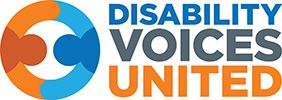There are 21 independent non-profit regional centers in California who identify and fund services for people with developmental disabilities. Every regional center has its own protocols and procedures. The Department of Developmental Services, the state agencies that contracts with the regional centers, provides directives on many issues, which can be found here.
Scott Shepard gave a presentation on supporting people, their families, and providers through COVID-19 during the webinar. He has kindly given us permission to share it.
Need for increased respite or personal assistance because of school or day program closures:
Individuals and families who need increased respite or personal assistance because of circumstances related to the Coronavirus have the right to these additional services. If you are in need of additional support in your home because of the changes caused by the Coronavirus, you should call your service coordinator ASAP to request it. Here are some suggestions for your request:
- Be sure that you write down how many hours you or your family member with a disability is home instead of in school, work, or a program.
- Write down how many of those hours the parent will not be at home (work or other responsibilities) or busy (with other children, cooking, etc).
- A request can be made based on the hours where a parent cannot care for the individual. The increase you receive will be temporary.
- If the caregiver becomes infected with the Coronavirus, there will be an immediate need for respite, potentially up to 24 hours a day if there are no other family members to assist.
- Remember that parents cannot be paid as the respite and personal assistance provider in most cases. It is usually a person that is hired through a respite agency – although you can select a person of your choice and get them hired.
Governor Newsom and DDS have recently issued several directives specifically advising regional centers on Coronavirus and providing them with additional authority to respond to community needs during this crisis.
On March 4, the Governor declared a state of emergency for California as a result of the threat of Coronavirus. On March 12, the Governor issued an Executive Order recognizing how important it is for people with developmental disabilities to continue to receive regional center services during the crisis. To make sure this crisis does not disrupt these important services, the Governor is allowing the Department of Developmental Services (DDS) to issue directives that waive various legal requirements and help regional centers to continue providing supports and services.
Following the Governor’s Executive Order, DDS has issued four Directives to regional centers.
The first directive gives regional centers the authority to pay service providers for absences that are the direct result of the Coronavirus outbreak. This will help service providers who may need to reduce or close their programs for a short time to keep their clients safe.
The second directive sets aside requirements that regional centers hold in-person meetings for Early Start evaluations, assessments, service coordination, and IPPs. This means that if an individual or family is concerned about meeting in person because of exposure to Coronavirus, they can ask the regional center to use other ways to meet, such as Skype, Facetime, or video and telephone conferencing. Also, a family can ask for their Early Start services to be provided by these other communication methods.
This directive also allows regional center Executive Directors to grant health and safety waivers instead of DDS. These health and safety waivers will allow service providers to receive higher rates for services in residential settings to protect a consumer’s health or safety as a result of the Coronavirus outbreak. This directive is to ensure that there is a timely and quick process to grant the waivers.
The third directive was issued to reduce the risk of exposure to Coronavirus for individuals who are at higher risk for serious illness. The Director of the Department is directing regional centers to take immediate action to ensure consumers who have compromised immune systems or who are more susceptible to respiratory illness, and/or who reside in licensed residential facilities, remain home rather than attend day services outside the home.
The fourth directive temporarily expanding the regional center services that can be participant-directed services. Consumers can now direct personal assistance, independent living skills, and supported employment services. The directive lasts 30 days, unless extended by DDS.
Amy Westling, Executive Director of the Association of Regional Center Agencies, explains the commitment of regional centers in this time of crisis:
“Regional centers are working in close collaboration with DDS on the system’s response to the COVID-19 virus in an effort to ensure many of these issues are addressed at a statewide level. As this is a developing situation, much of the best feedback regarding current practices and expectations for regional centers and service providers can be obtained from DDS. In making local decisions, regional centers are also looking to clinical information from DDS as well as local departments of public health. Collectively, the top priority is the protection of the health and safety of each person being supported.”
The Association of Regional Center Agencies (ARCA) issued a statement on regional centers’ readiness to help people receiving services from them, including the possibility of changes to round-the-clock care and increases in services during this difficult time.
Assistance from Disability Rights California:
If you are concerned that you or your family member is not receiving the services they are entitled to or special accommodations are not being made based on the DDS directives, you can call your local Clients’ Rights Advocate for more information and support:
Northern California 1-800-390-7032 (TTY 877-669-6023)
Southern California 1-866-833-6712 (TTY 877-669-6023)
